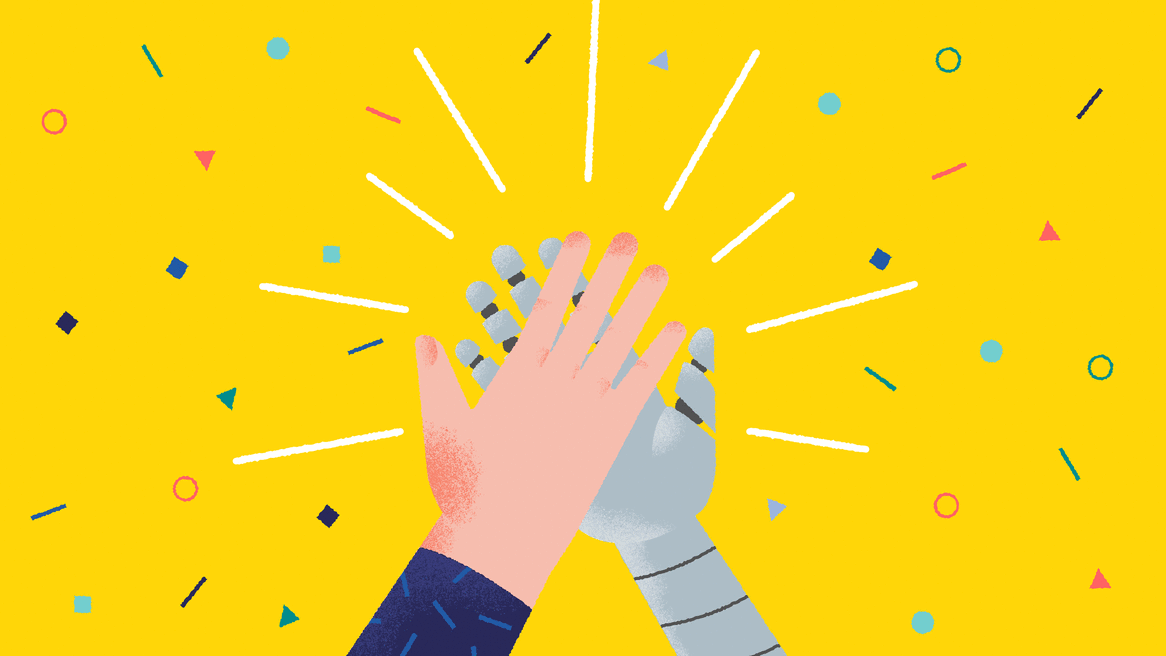Future Work
What today’s trends are saying about tomorrow
Technology is rapidly altering how we live and work. We love the new conveniences that our devices deliver. But as workplace technology becomes a coworker and even a personal companion, we aren’t always sure how we really feel about it.
As the digital revolution gains momentum, it’s important to imagine and prepare for what the impacts may be. Because it’s not just about technology; it’s also about our human experiences—including at work where most of us spend so many of our awake hours. The more we productively interact with machines, the more important our creativity, values and passions will become.
Are you ready to respond to tomorrow’s possibilities? What patterns for the future can you see in trends like new digital collaboration tools and scheduling systems happening in the workplace today?
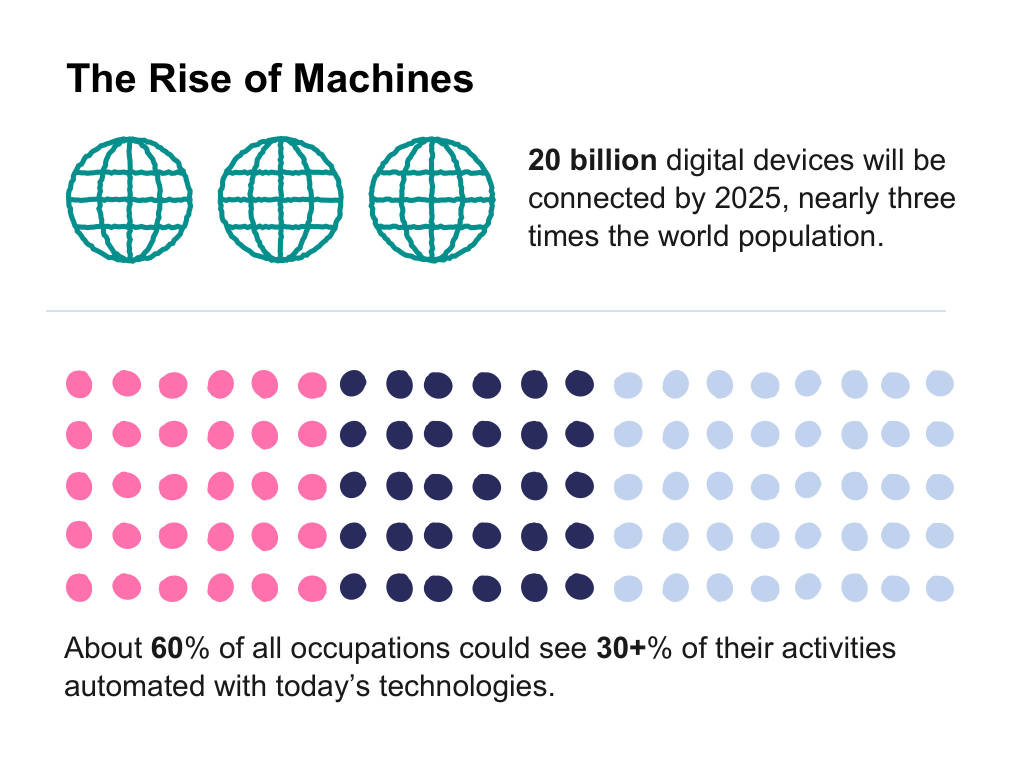
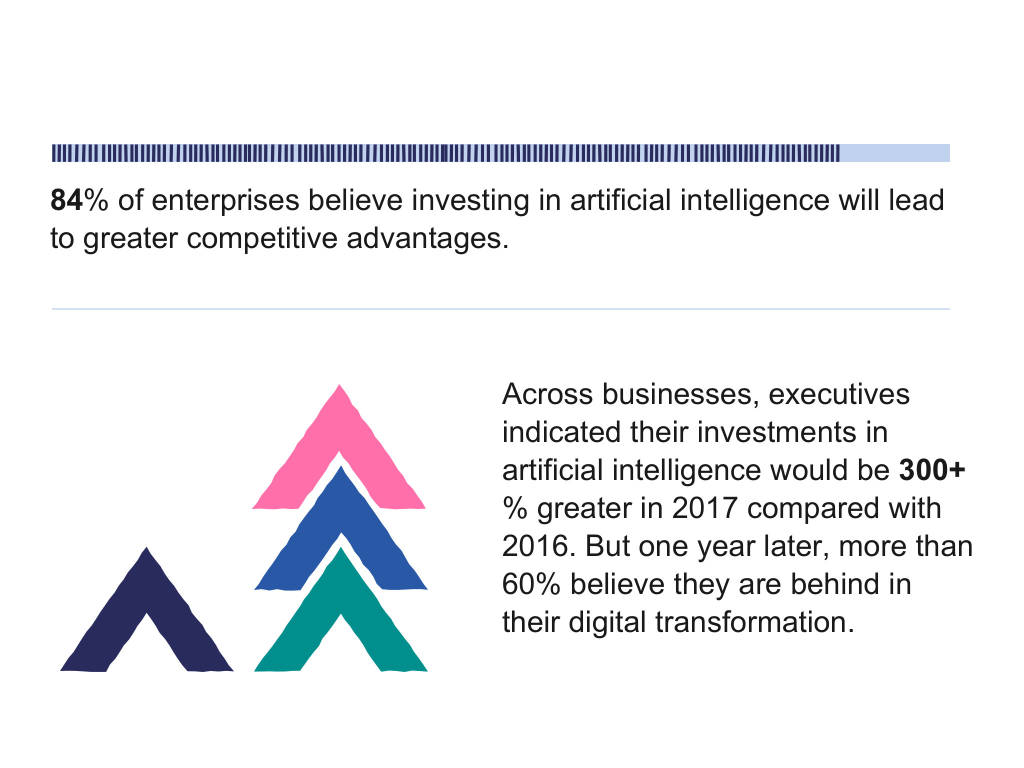
The hardest things to automate: managing and developing people and applying expertise to decision making, planning or creative work.
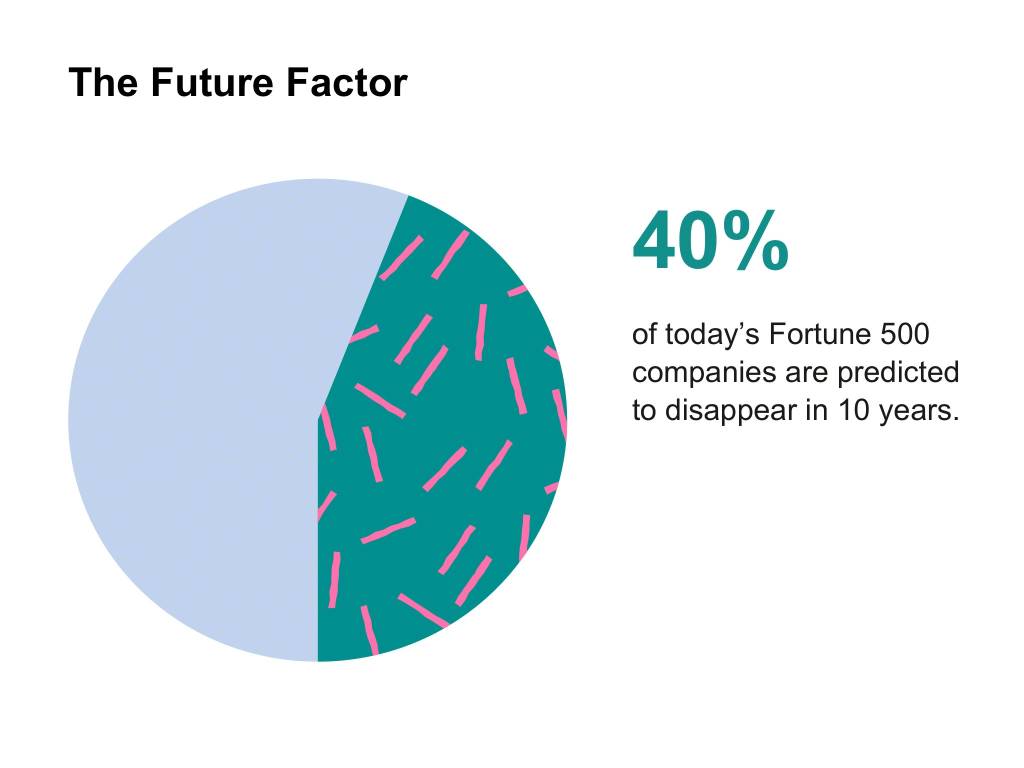
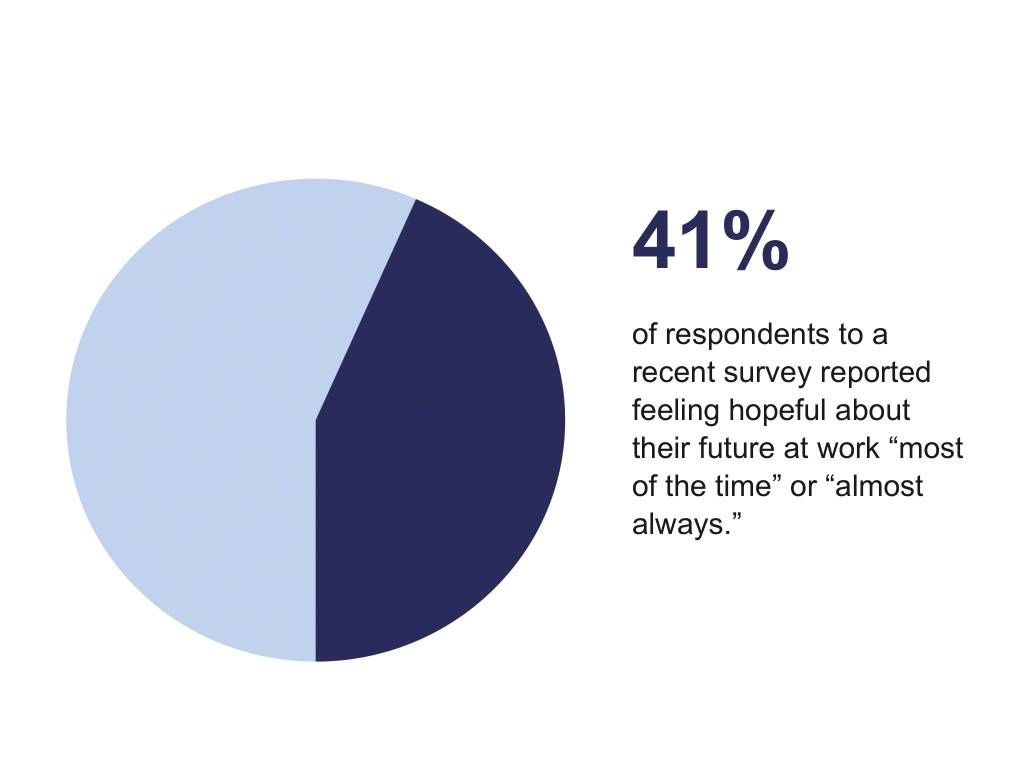
Business leaders have identified building the organization “of the future” as their most important challenge.
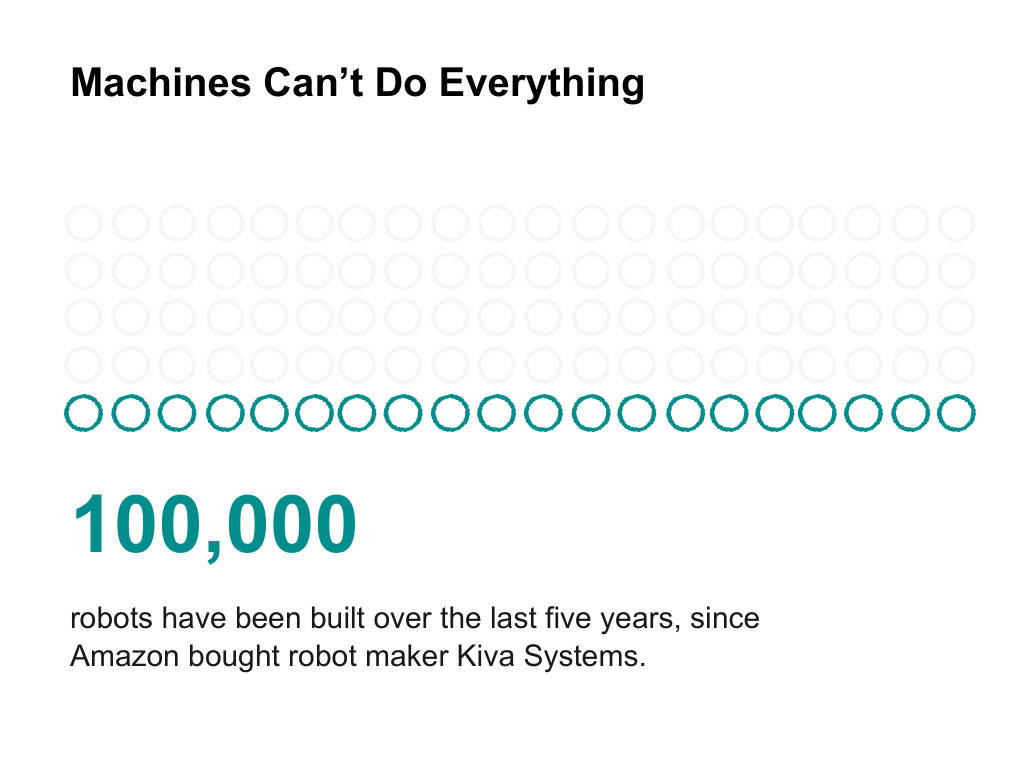
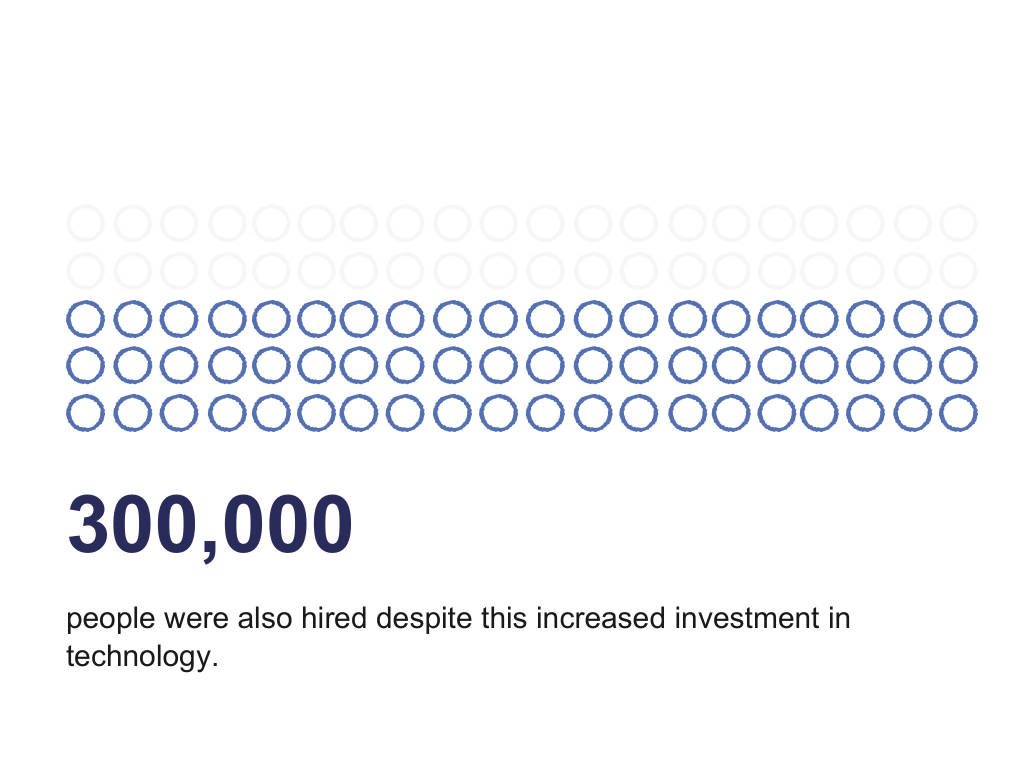
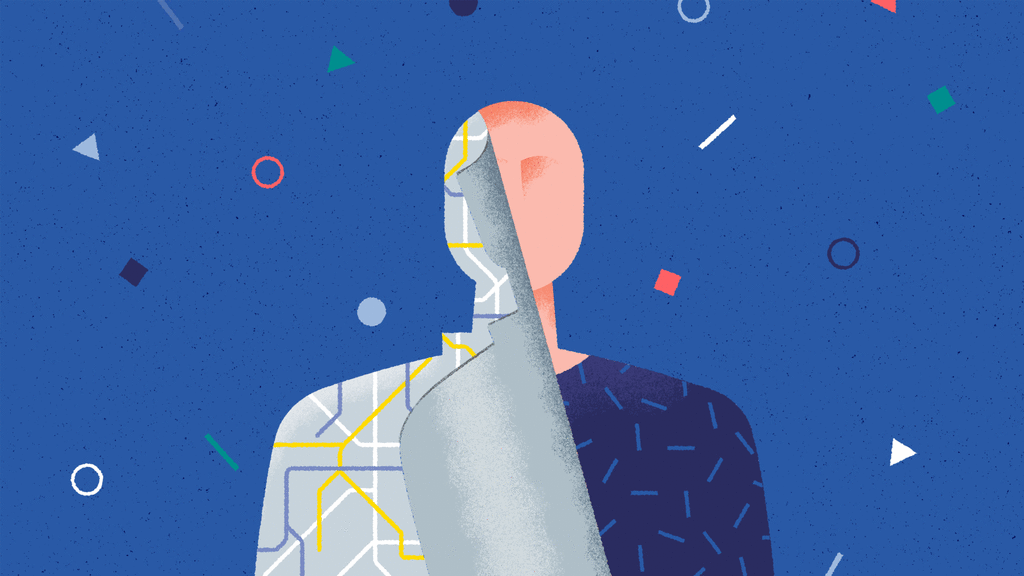
“AI is made by humans, intended to behave by humans and, ultimately, to impact humans lives and human society.”
Fei- Fei LiGoogle Chief Scientist and Stanford Professor
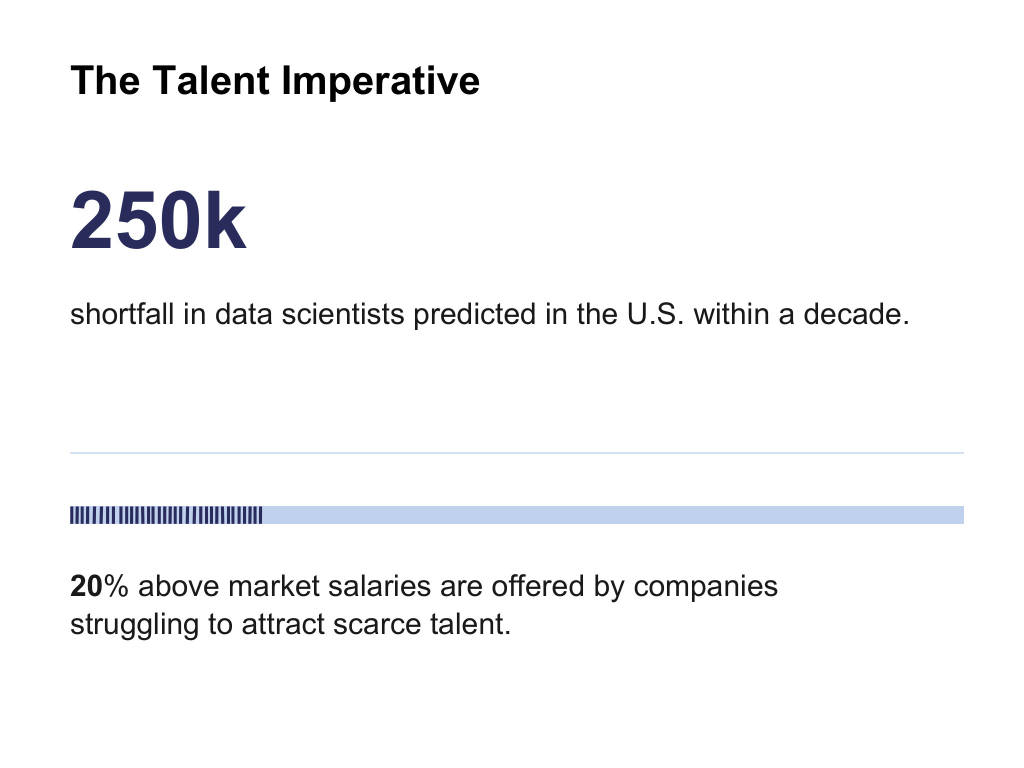
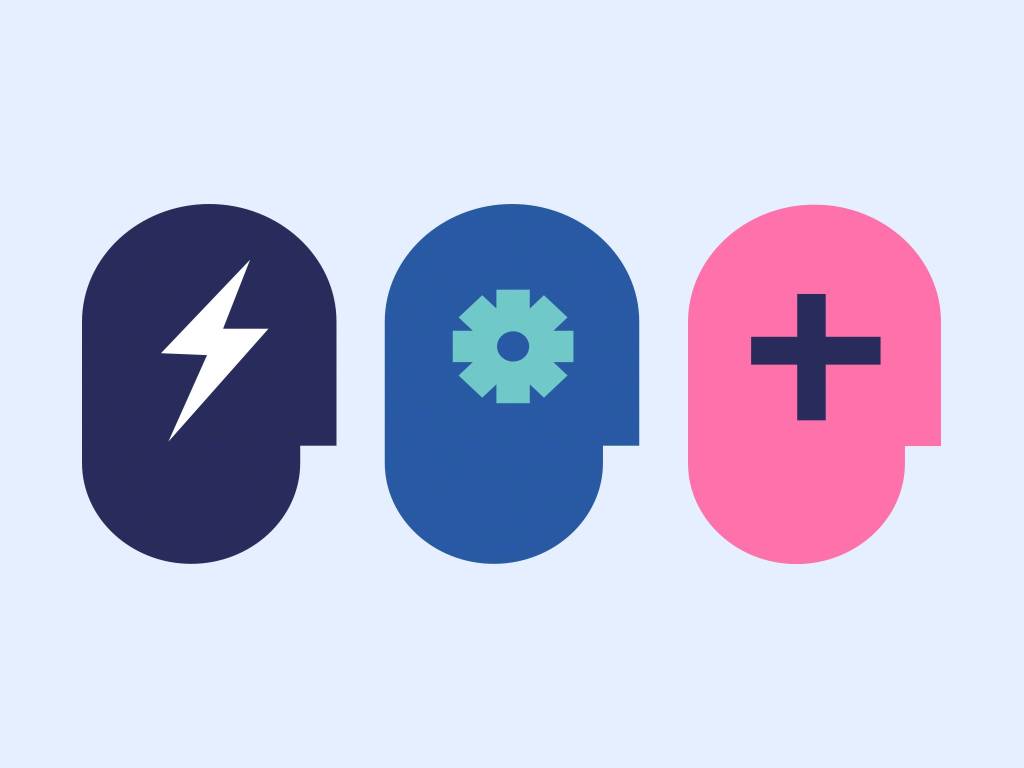
“… skilling-up for an AI-powered world involves more than science, technology, engineering and math. As computers behave more like humans, humanities and social sciences will become even more important…”
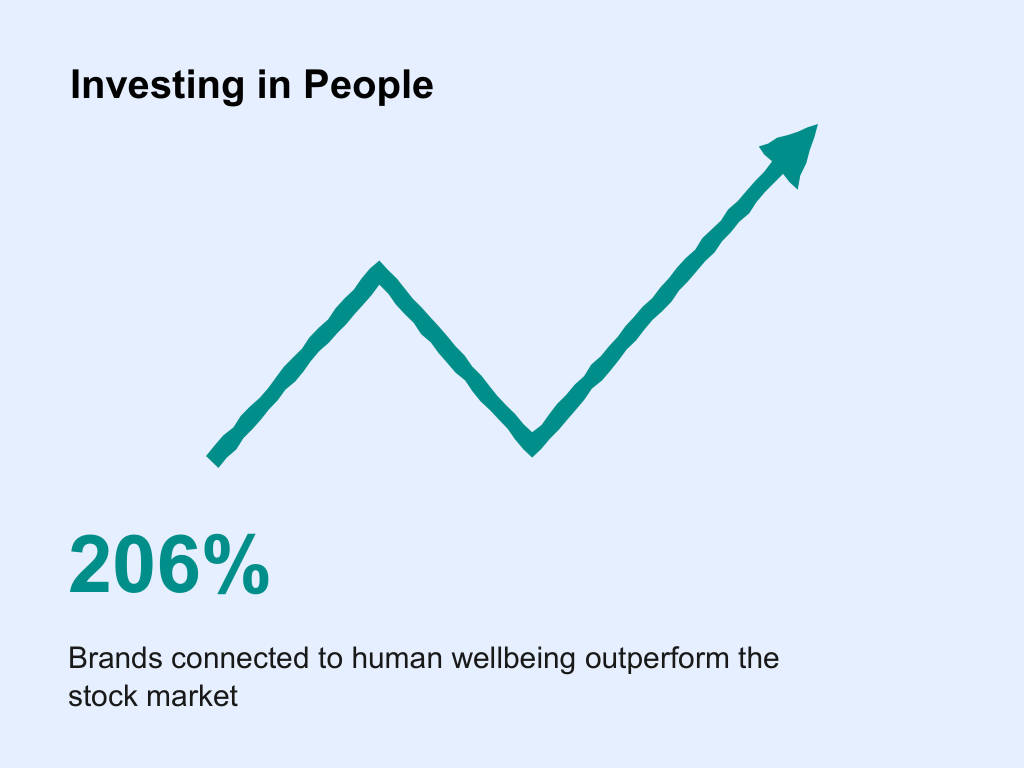
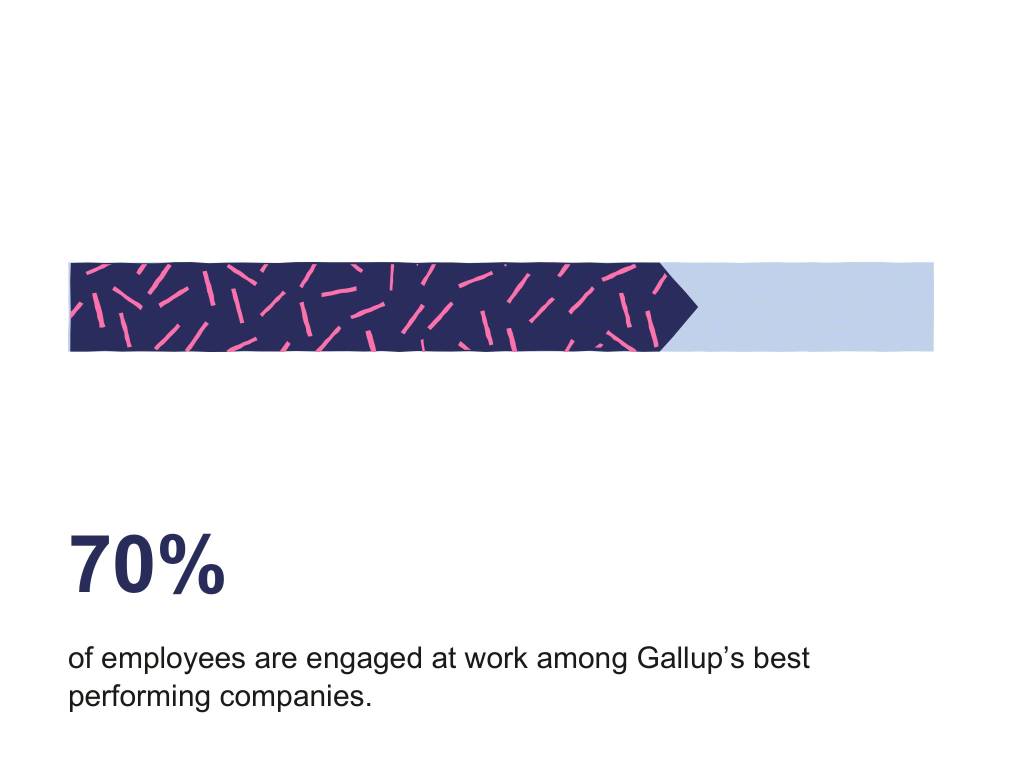
Companies that invest in employees’ technological, cultural, and physical work environments have more than four times the average profit and more than two times the average revenue compared to companies that don’t.


